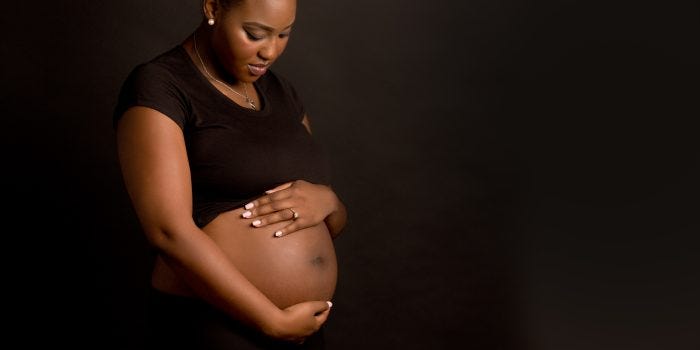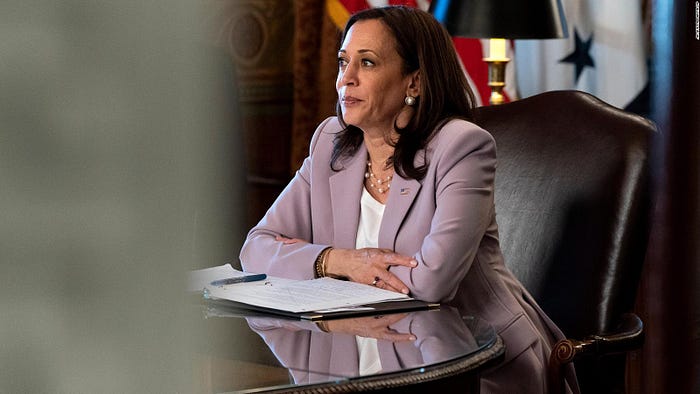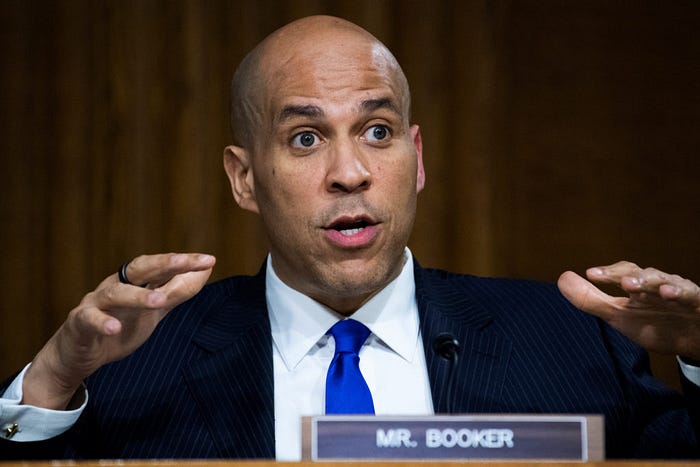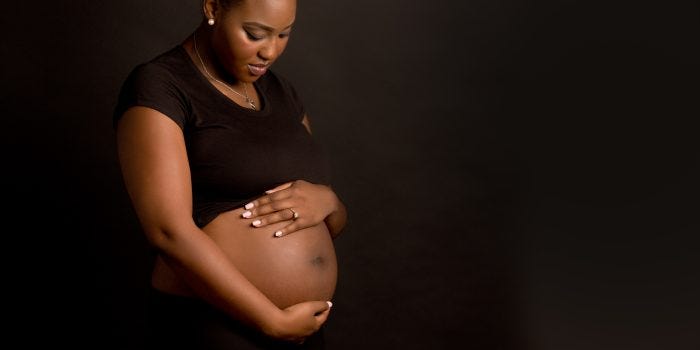As Black Maternal Health Week comes to a close, members of congress and senate come together to bring about resolutions and raise awareness.

Today ends Black Maternal Health Week, an initiative sanctioned by Biden last year and run by the Black Mamas Matter Alliance.
“We are looking at the likelihood that Black women are three times more likely to die in connection with childbirth, that Native women are twice as likely to die, that rural women are one and a half times more likely to die,” Vice President Kamala Harris said on Tuesday during a phone call with journalists.

According to the CDC, the maternal mortality rate for Black women has risen by 26 percent since the Covid-19 pandemic first began.
Our very own Culture Editor Bianca Gregg could have been one of the many Black mothers who fell victim to the numbers just two years ago when she gave birth to her second child, London.
It was in a military hospital in Virginia where she found herself surrounded by eight doctors and nurses, her husband, and child who she was still carrying.
The pressure was on — and though she hadn’t been given all the facts, she was left with a decision to make that would impact the rest of her life, and the life of her family.
“Unfortunately, the prenatal counseling that should warn woman about these dangers often does not address these dangers in the very women who have these rates and by not warning them, the silence can be very deadly. It’s not race, its racism,” Harriet Washington, author of Medical Apartheid said during an interview with Nightline.
In fact, Bianca was told that her weight was an issue when she was called into the hospital on a Friday and prematurely induced. To this day, she still doesn’t understand why her water was broken early. The next day, when she and her baby caught an infection, she was told that if she didn’t get a cesarean, it would become dangerous for the both of them.
“Many people still believe that there is something inherent about the bodies of African-Americans that causes African-American children and infants to inter-counter difficulties from birth, but it’s not true,” Washington said.
Bianca’s cervix was too small for the baby, they told her.
But that turned out to be untrue. She’d had successful delivered her first born, Kennedy, through regular vaginal birth at Cooper Hospital in Camden, New Jersey without complication — and while the city is known for crime and poverty, her experience wasn’t negative.
“They didn’t explain too many things. I never got a full understanding of why they broke my water when they did,” she said. “I was diagnosed with things that did not exist, but the infection They caused was very real and almost cost me London.”
Ultimately, Bianca chose to get the C-section, though it left her traumatized. Her second child, London was delivered at seven pounds and nine ounces — which is only a pound larger than her sister.

Congresswoman Alma Adams, Congresswoman Lauren Underwood, and Senator Cory Booker put together a package of resolutions that included support from 110 members of congress to raise awareness the state of Black maternal health. Read more via their official release here.

